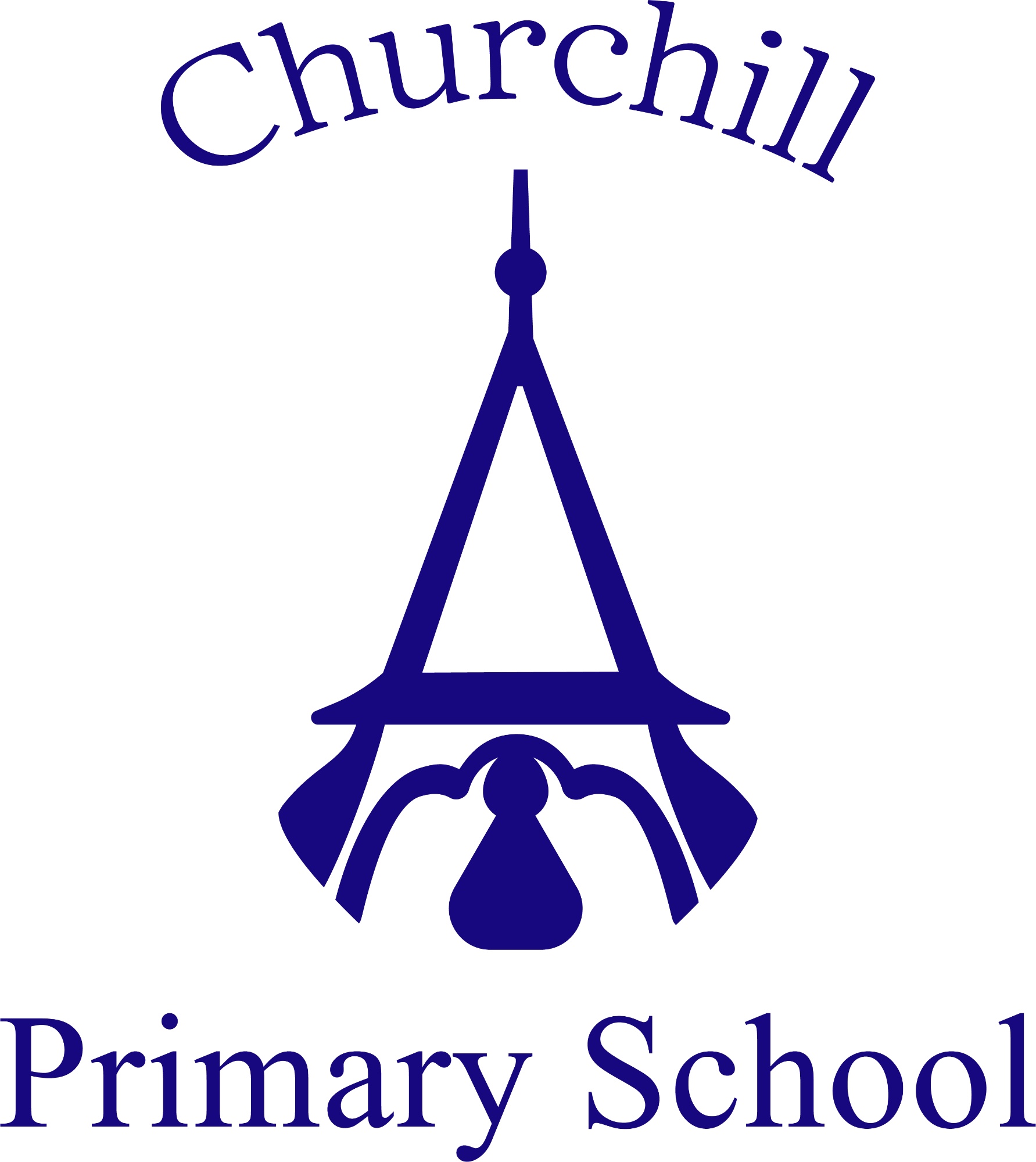Curriculum Overview and Skills Ladder
Implementation
The legal position of religious education
Our school curriculum for RE meets the requirements of the Education Act (1996). The act states it is compulsory that RE is provided for all children, in accordance with the locally agreed syllabus; ‘Awareness Mystery and Value’. RE should play a part in the spiritual, moral, cultural, mental and physical development of pupils. It should take account of the fact that religious traditions in the UK are predominantly Christian, while also taking account of the teachings and practices of other principal religions and world views in the UK. As a Church of England School, parents of all pupils may request that their children receive RE in accordance to the trust deed relating to the school. Further advice on this matter can be obtained from the local Standing Advisory Council on Religious Education. RE must not be designed to convert, or force upon pupils, any religious belief or practice.
Planning
Religious Education has the same status and importance as any other subject and the same high standards are applied to Religious Education as to all other subjects. Our school scheme of work is planned in line with the agreed syllabus (http://www.awarenessmysteryvalue.org/) and is supported by Discovery RE scheme, which promotes our curriculum intention and aims.
In accordance with the agreed syllabus, the teaching of religions reflects the fact that the religious traditions in Great Britain are, in the main, Christian. In EYFS & KS1, we will study Christianity, Islam, Humanism and Hinduism (which Discovery RE calls Sanatana Dharma). In KS2, we study Christianity, Islam, Judaism and Hinduism (Sanatana Dharma) and Humanism.
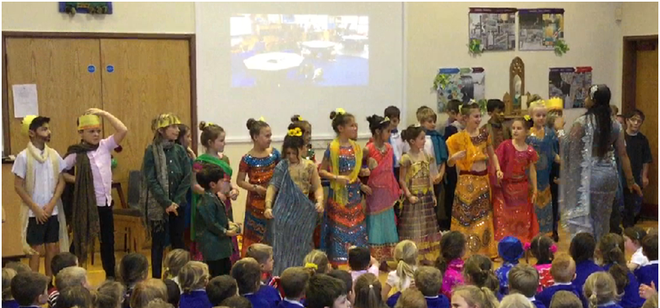
Teaching & Learning
- Visits and Visitors – whenever possible we endeavour to use first hand direct experience to build upon children’s learning in class. Visits from believers and leaders of various faiths are sought for each theme where possible and we are looking to extend our provision through visits to major religious buildings, such as mosque and synagogue
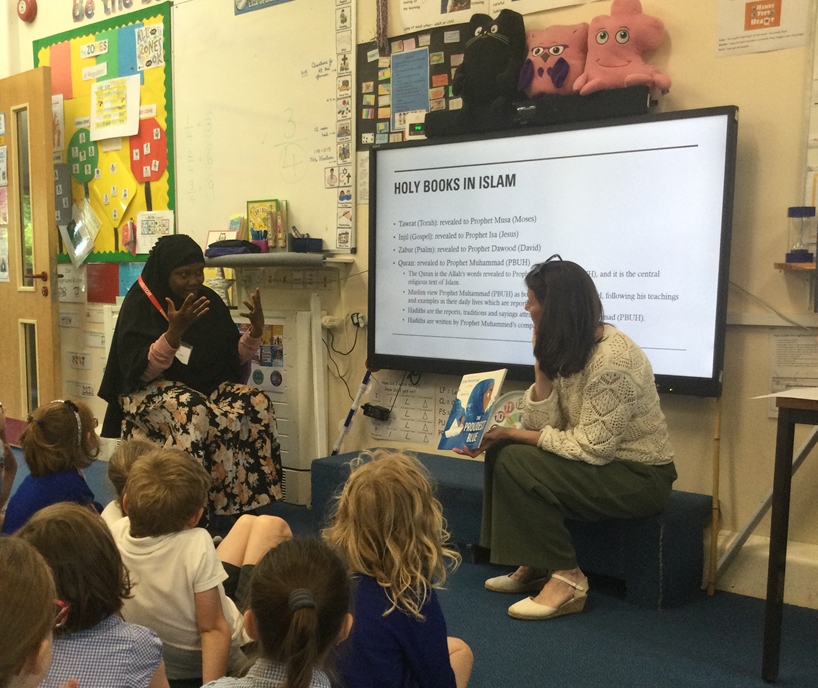
- Use of religious artefacts wherever possible.
- Active learning – discussions, debates, role play and reflection.
- Enquiry based learning – asking and answering questions about life, moral and religious issues.
- Use of quality online resources such as video clips, museums and virtual tours - including online participation in the Bishops’ Online Collective Worship.
- Creative and expressive activities including music, art and poetry
- Circle Time so children can explore and express their thoughts and beliefs
- Stilling and reflection techniques
- Links to our local church communities of St Mary’s and St John’s as well as teachings provided by Rev’d David Gent from the Wrington and Langford Benefice.
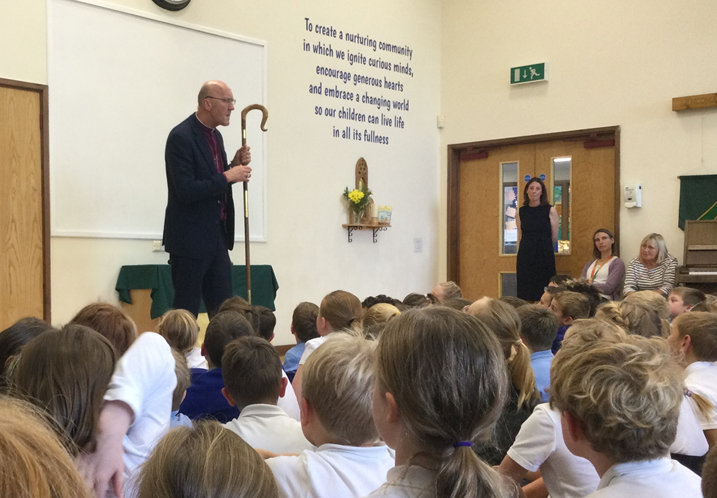
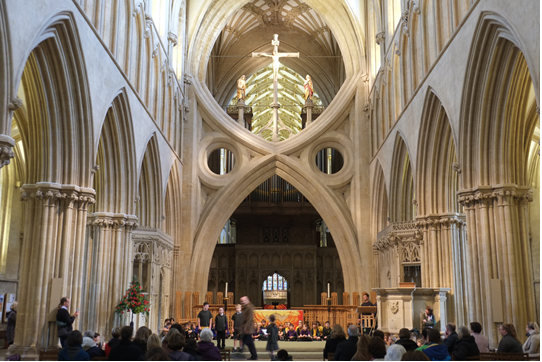
Other activities and whole school events:
- RE work links to Christmas, Easter, Harvest church celebrations and Year 5 Church Day
- Children visit church to learn experientially about Christmas and Easter additionally to the RE curriculum
Assessment
Children’s progress is assessed formatively by teachers throughout the learning journey. At the end of a unit teachers assess the children’s knowledge and understanding based on a central or unifying idea/ theme within the unit of learning. There is an expectation that once pupils have been taught the unit the teacher reports by exception, meaning we only record the names of pupils who are working below the expectation and at greater depth. Our priority for assessment is to check that curriculum content is learnt and committed to long-term memory. The tasks we use are designed for pupils to be able to demonstrate that they know more, remember more and are able to do more as a result of the explicit teaching they have encountered.
Effort and pupils' attainment in RE are reported annually to parents and guardians.
The RE subject leader meets regularly with the Ethos committee, attended by the Foundation Governors, to review the learning and teaching of RE.
